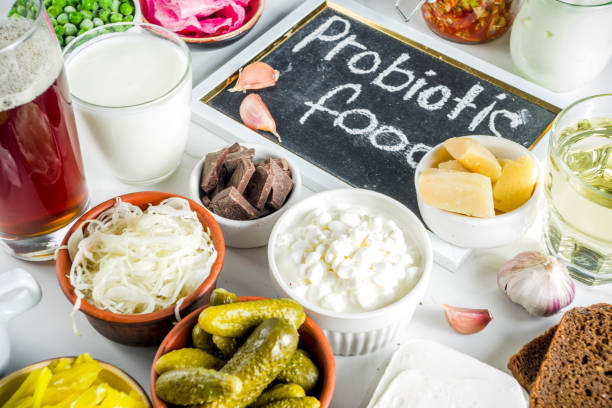One word—probiotics—has become very popular in the complex field of gut health. These microscopic creatures, commonly known as “good bacteria,” are essential to a balanced microbiome. From digestion to immunological function, the microbiome—a complex population of trillions of microbes’ resident in our digestive system—influences it all.
Probiotics and Their Function

Achieving Harmony
By encouraging the expansion of good bacteria while inhibiting the spread of bad ones, probiotics help maintain the microbiome’s delicate equilibrium. This equilibrium is crucial for the best possible digestive health and general wellness.
Healthy Digestive System
Probiotics can aid digestion, which is one of its main advantages. They keep bad bacteria from multiplying and causing gastrointestinal problems including gas, bloating, and irritable bowel syndrome (IBS), in addition to aiding in food digestion and nutrition absorption.
Strain Specificity: How to Choose the Best Probiotics
Every probiotic has its own unique properties. Choosing the proper probiotic for specific health goals is vital, as different strains offer differing advantages. Common strains of beneficial bacteria for the digestive system include Lactobacillus and Bifidobacterium.
What are Fermented Foods?
Yogurt, kefir, sauerkraut, and kimchi are fermented foods that might be a tasty way to eat more probiotics without even realizing it. Your microbiome can benefit from the variety of helpful bacteria found in these meals.
Final Thoughts
The use of probiotics is crucial in the pursuit of a healthy microbiome. In addition to aiding digestion, these beneficial bacteria also strengthen the immune system, which has far-reaching effects on general health. Not only are you helping your gut health, but you’re also laying the groundwork for a stronger, healthier you by include probiotic-rich foods and pills in your daily routine. Let your microbiota flourish by diving into the realm of probiotics!